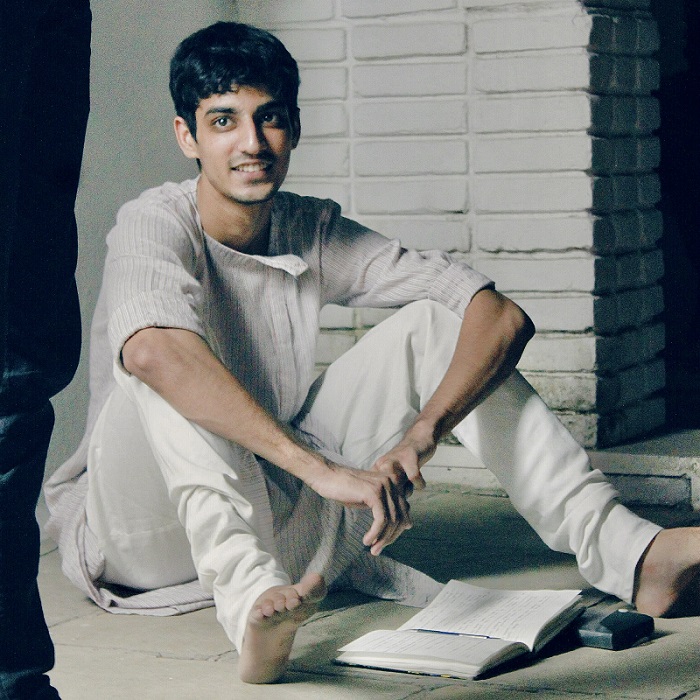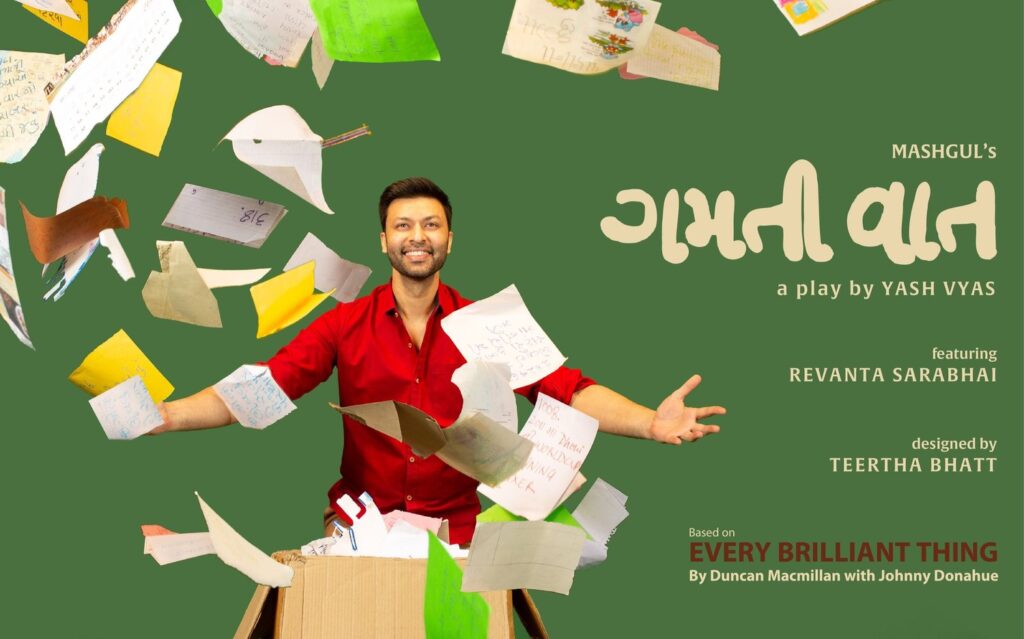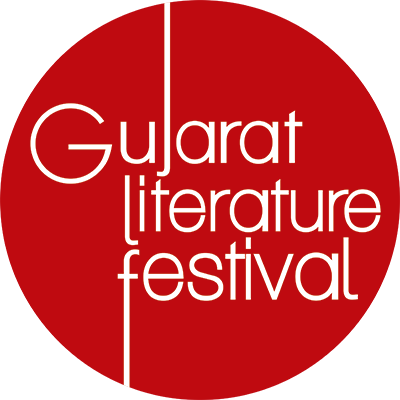
Young writer Yash Vyas has captured the nerve-wracking experience of the pandemic and its psychological impact in a tender adaption of Duncan Macmillan and Johnny Donahue’s “Every brilliant thing” into a Gujarati play “Gamti Vaat”. The play that opened to great reviews drew attention to contemporary work in Gujarati.

Yash, who is a fan of Chandrakant Bakshi and Madhu Rye, underlines that the fluidity of a language should not be fenced in any way.
Do you think the Gujarati language has changed or is changing?
I am happy that writers are no longer orthodox! By which I mean, there is no barrier, nothing like ‘shudh’ or ‘pure’ Gujarati. Critics were tough back in the era when writers like Chandrakant Bakshi, Madhu Rye and others penned pages after pages with words that carried us to a faraway land. Writers were harsh on themselves. My take, the Gujarati language per se, is not ‘shudh’—a lot of words used in the language are derived from Persian or Arabic language for instance—tabiyat, khabar, bazaar and more. Where is one going to hunt for ‘shudhta’ or ‘purity’?
So, when I speak Gujarati and use English words now and then, I am frowned upon, but if I use Persian or Arabic words, then it’s all maaf (forgiven or permitted).
Today, there are many contemporary words used by us but neither the language has an immediate rendering for every new word spoken around us nor does every word require translation. One needs to understand that language is fluid and very democratic; only people can decide whether it’s Gujarati or not. In the contemporary world, a writer’s language need not always have a translated version. Language is fluid and should be treated that way.
What’s your take on the use of English words in Gujarati poetries, ghazals, shayaris, et al?
Well, I am a very small person to say anything but personally, I don’t like when English words are used in Gujarati poems, shers or ghazals. That should be purely in Gujarati. I feel it is pointless!
There are 90% chances that the use of English words in one’s poetic form of writing is because the individual is lazy. A slight push to yourself or if you work hard then you are likely to find the most relevant translation for your words. Again, while language is fluid and I stand by what I said earlier, these forms of writing have emotions that need to be penned in a particular manner.
If it’s a play, story or something else, then it will depend on the form or type of the long-form writing you do. For instance, the play I wrote “Gamti Vaat” is contemporary in every way but it is also fighting for the purity of words. I am not shunning the use of English words, but certain topics are dealt with in a certain manner, like the way I have written the play, which was an inclusive form of writing. I have tried my best to stick to the Gujarati language as much as possible.
Has the changing Gujarati language changed the way millennials or audiences, in general, perceive Gujarati literature?
Yes, definitely the way Gujarati literature is perceived by the millennials has changed. But it’s not changed through the change in the Gujarati language. Rather, I would say, it has been majorly affected by ultra-digital and ‘modern’ lifestyles lived by millennials.
The digital world demands one to be truly cosmopolitan and to achieve that the newer generation often misses romanticising their Gujarati culture and language. So the change is there, but change is not caused by the changing Gujarati literature.
Your take on Gujarati films?
Honestly, I am not a film man! But yes, I do have a question about the writers or makers of these films—why are your titles written in Roman?
For instance, any film from the south of India will have titles also written in the same language. But in Gujarati films, the title of the film is written in Roman or Guj-lish as it’s known today. I am okay with the English translation but the poster should have its titles in Gujarati ONLY!
The interview was conducted for GLF by Kinjal Shah

Very well articulated, Yash. At such a young age your clarity on the issue is really impressive. My gujarati, spoken and writing , is not above average but I try and many a times I inadvertently include English words in a normal flow while speaking. Not too much concerned about being shuddh.
Well thought through and penned. Straight from heart. All the best Yash.
बहुत खुसी हुई के आप नए लोगो को मौका दे रहे है और ये हमारे गुजरात के लिए बहुत गर्व की बात है ऐसे ही लोगो को प्रोत्साहन कीजिये
बहुत सुक्रिया